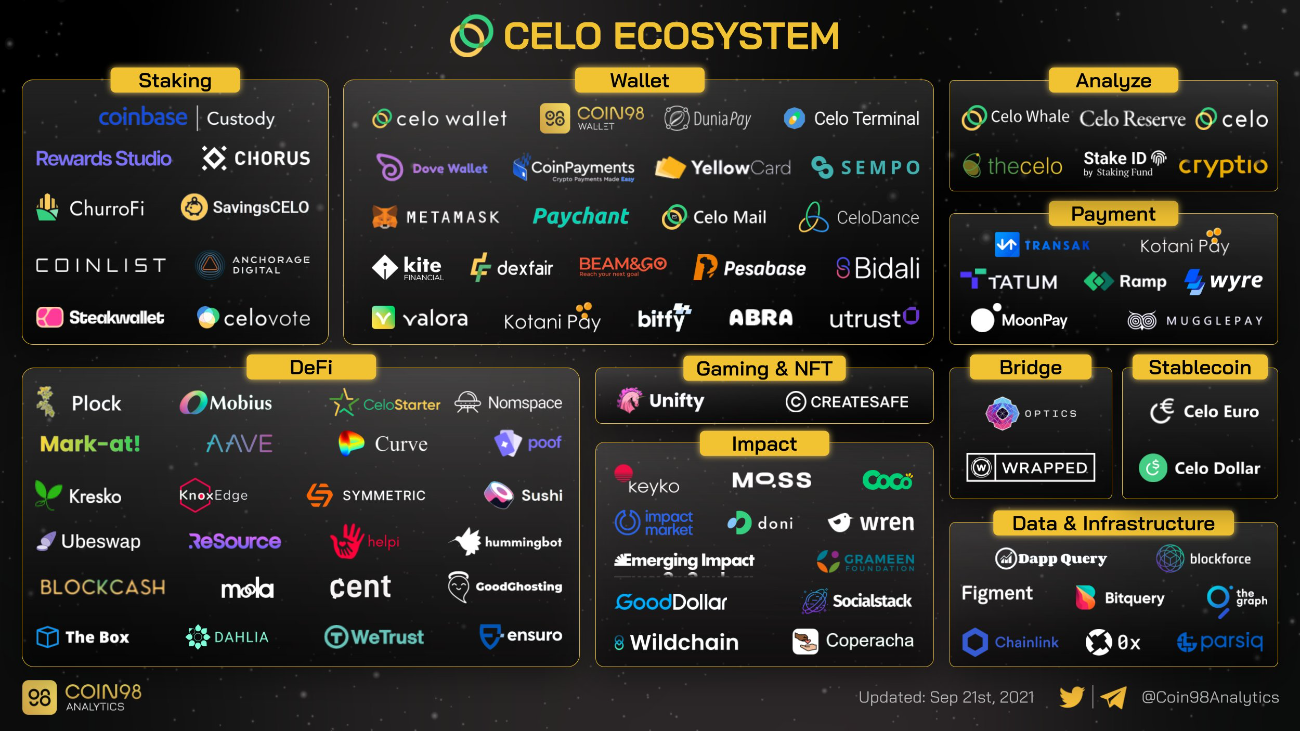What is Celo (CELO)? Everything you need to know about CELO Token

In this article, I will introduce you to the Celo, including the following information:
- What are Celo and the CELO token? How does Celo work?
- Specific details about the CELO token and its tokenomics, including its up-to-date price, key metrics, distribution and use cases.
- How to get CELO? Where to store it?
- Roadmap & information about the team, investors, and partners.
What is Celo?
Celo is a mobile, carbon-neutral blockchain that makes decentralized financial (DeFi) tools and services accessible to anyone with a mobile phone–bringing the benefits of DeFi to the users of the 6 billion smartphones in circulation.
Celo enables native and non-native digital assets–both cryptographic and Central Bank Digital Currencies (CBDCs)–to circulate freely across devices, carriers, and countries. This makes money mobile, global and accessible all around the world.
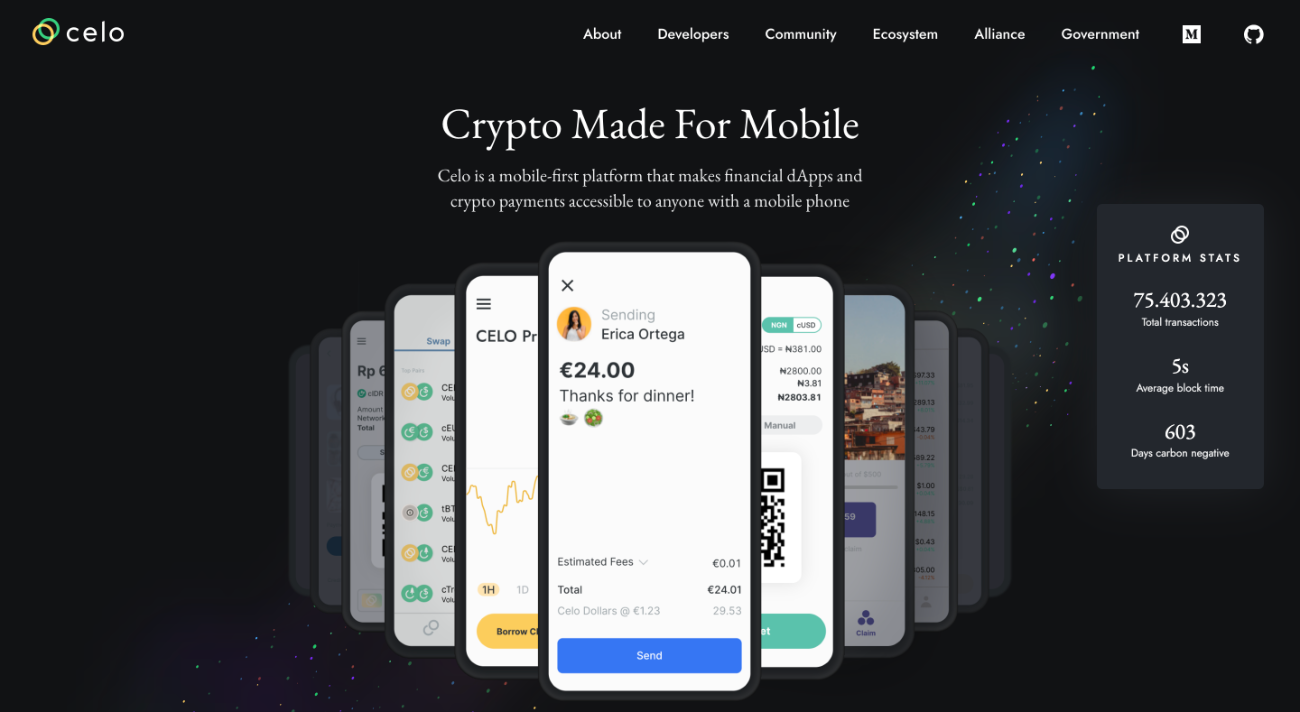
How does Celo work?
Celo turns crypto into usable money with a multi-asset system: a governance and staking asset (CELO) and a family of stablecoins (cUSD & cEUR).
Since Celo is mobile-friendly and has an on-chain public key infrastructure which links phone numbers to public keys, then anyone can send funds straight to their family & friends’ mobile numbers even if they don't have a bank account or crypto wallet yet.
Celo Dollars
Celo Dollars (cUSD) and Celo Euros (cEUR) are stablecoins that allow users to share value easily on their mobile phones.
Celo stablecoins provide instant access to everyday uses such as low-cost remittances and cross-border payments, global charitable aid distribution, paying online, or transferring value within exchanges, particularly in markets prone to currency volatility.
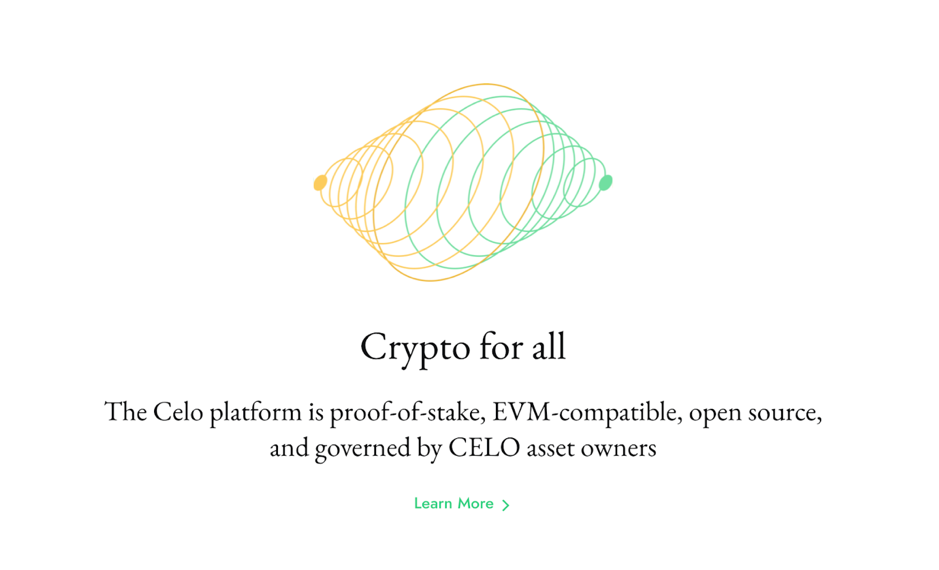
Users can transaction with Celo Dollars on any mobile phones using an application that is compatible with Celo.
Valora
Valora is an good example. Unlike traditional payments, which can take hours to send or receive money, Valora is a global app that allows users to pay, send, and store Celo Dollars on their mobile phones in seconds for very low fees.
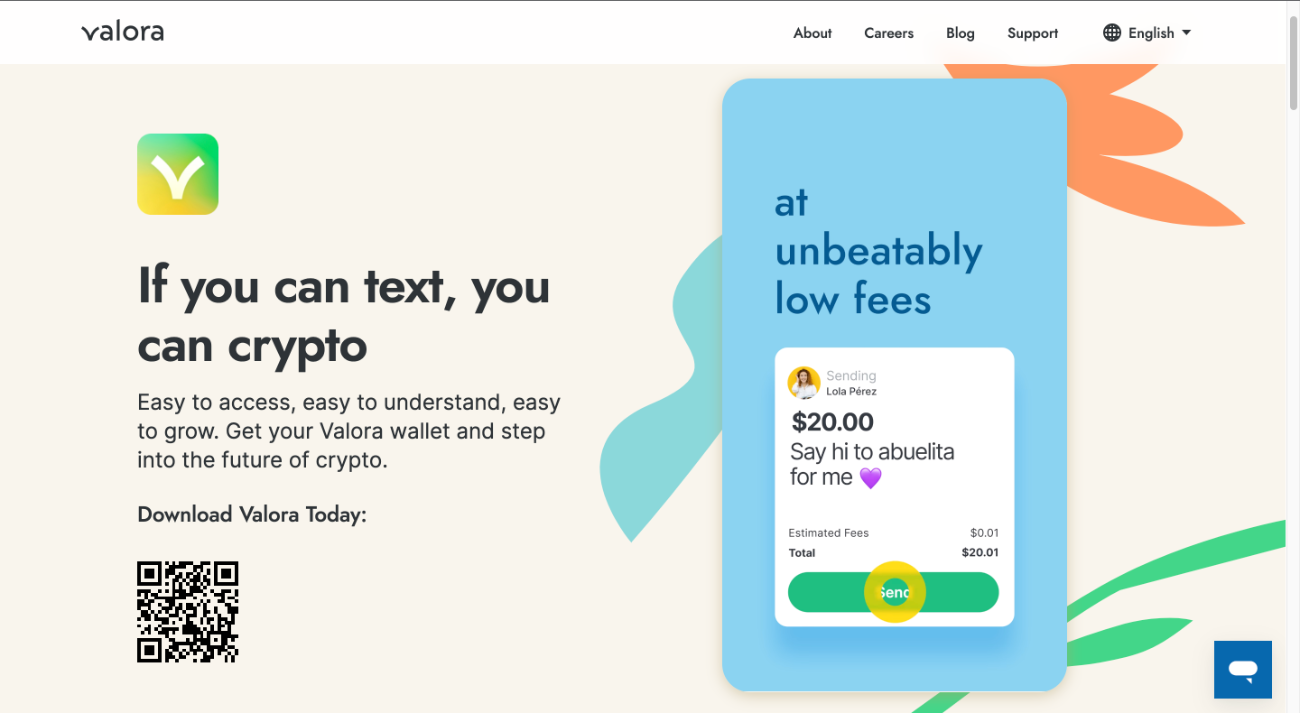
Another practical example of Celo is if you want to send money to your grandpa, who lives far from you. All you need to do is download Valora and enter your grandpa’s phone number. Once you send the fund, your grandpa will receive a text message letting her know that she has received the payment.

Your grandfather, who is unfamiliar with cryptocurrencies, can use the provided link to download the Valora App and claim the fund, and everything will happen in a decentralised manner.
Through this example, you can see that Celo's target users are all people around the world who have mobile phones, whether they are crypto or non-crypto users.
Celo Stack
The Celo stack is structured into the following logical layers:
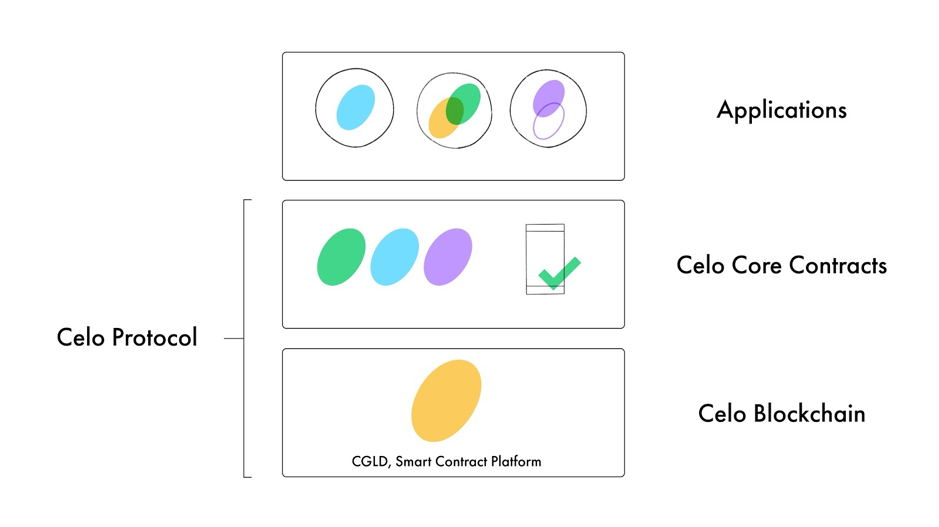
Celo Noteworthy Features
Open: Celo uses a Proof-of-Stake (PoS) consensus protocol. With its interoperability, full EVM compatibility, Celo’s open-source infrastructure now supports 1000+ projects from builders, developers, and even artists, who every day create new applications and issue digital currencies from 100+ countries around the world.
Celo will be able to facilitate transactions between other smart contract enabled layer 1 blockchains such as Ethereum, Cosmos, Solana, Near, and others thanks to the Optics, a new gas-efficient bridging standard that connects Celo with Ethereum.
Mobile-friendly: Mobile phone number mapping to account addresses for a seamless user experience on platform-native dApps such as impactMarket or Valora.
Ultra-accessible with Ultralight Mobile Client: The ultralight client is a zk-SNARK-based system that enables mobile and resource-constrained Celo network nodes to sync to the Celo blockchain faster and with less data. It accomplishes this by applying zero-knowledge proofs, which allow for quick verification of the chain syncing computation without having to run it locally.
Gas Payable in Multiple Stablecoins: Users can pay transaction fees by the available stable coin. Therefore, it helps remove the troublesome need to store multiple blockchain coins.
Detailed information about CELO Token
CELO token metrics
- Token Name: Celo
- Ticker: CELO
- Blockchain: Celo Blockchain
- Token Standard: Updating…
- Contract: 0x471ece3750da237f93b8e339c536989b8978a438
- Token Type: Utility and Governance
- Total Supply: 1.000.000.000 CELO
- Circulating Supply: 367.204.495 CELO
CELO Token Allocation
- Staking & Validator Rewards: 30%.
- Community Grants: 19.5%.
- Protocol Contributors: 18.5%.
- Pre-launch Sales Purchasers: 12.5%.
- Initial Reserve: 12%.
- Operational Grants: 7.5%
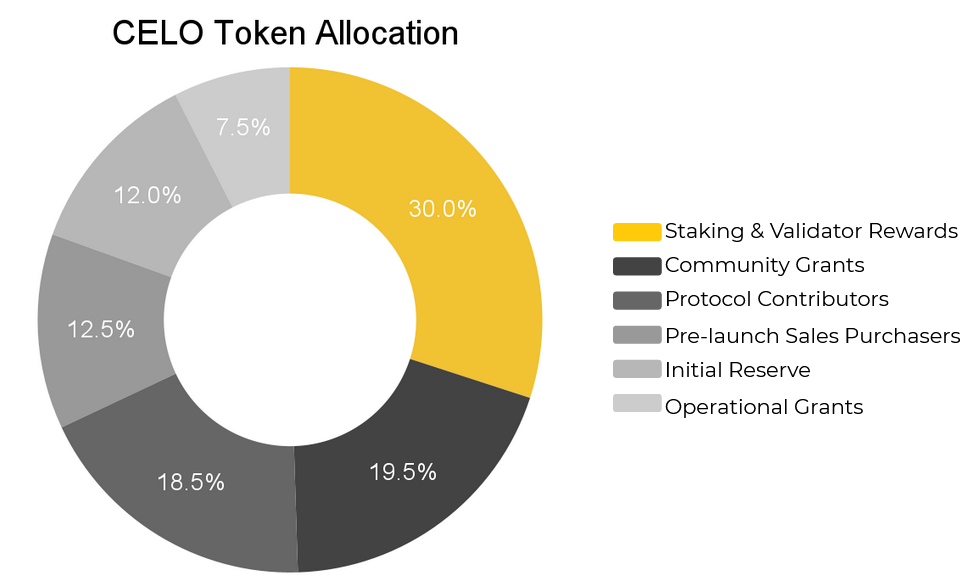
CELO Token Sale
- Private Sale 1: $0.18/CELO.
- Private Sale 2: IDO on Coinlist on May 11 for $1/CELO, with a discount of 25% for investors who accept an additional 3-year lockup.
CELO Release Schedule
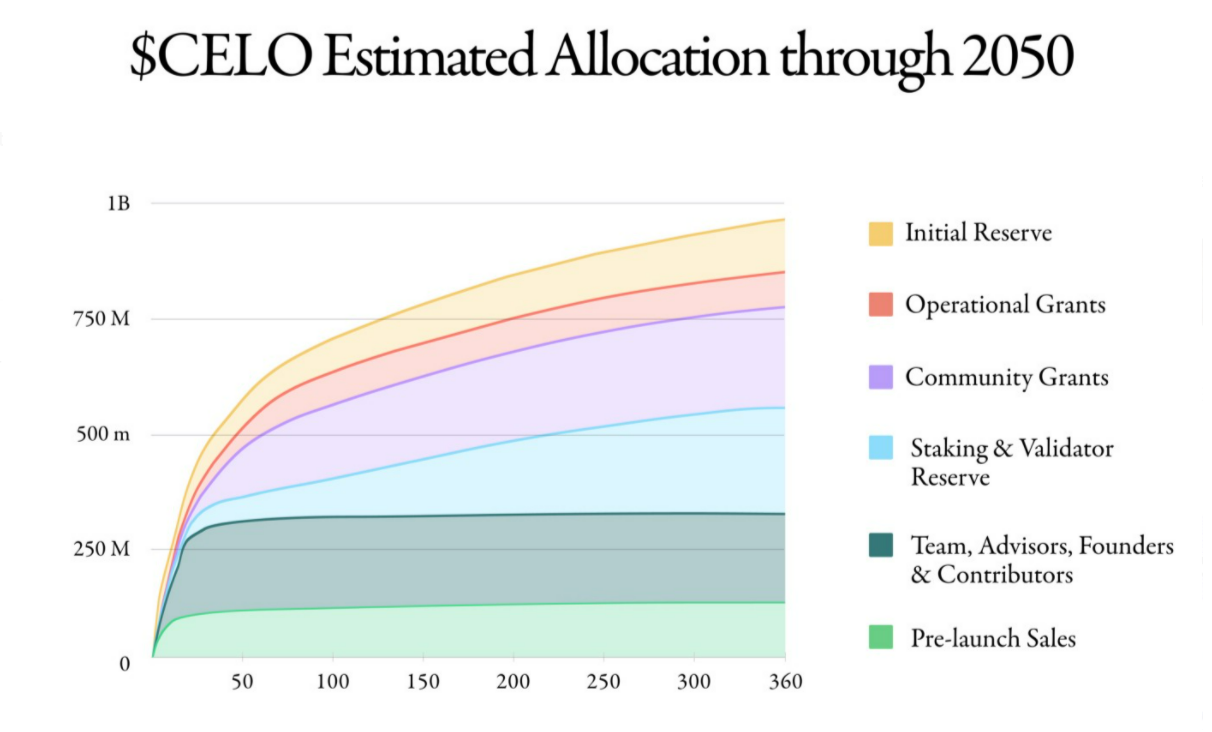
All tokens will be fully unlocked until 2050, with three major time intervals. It is T+1 year, T+10 year, and 2050 year. The diagram below depicts detailed data:
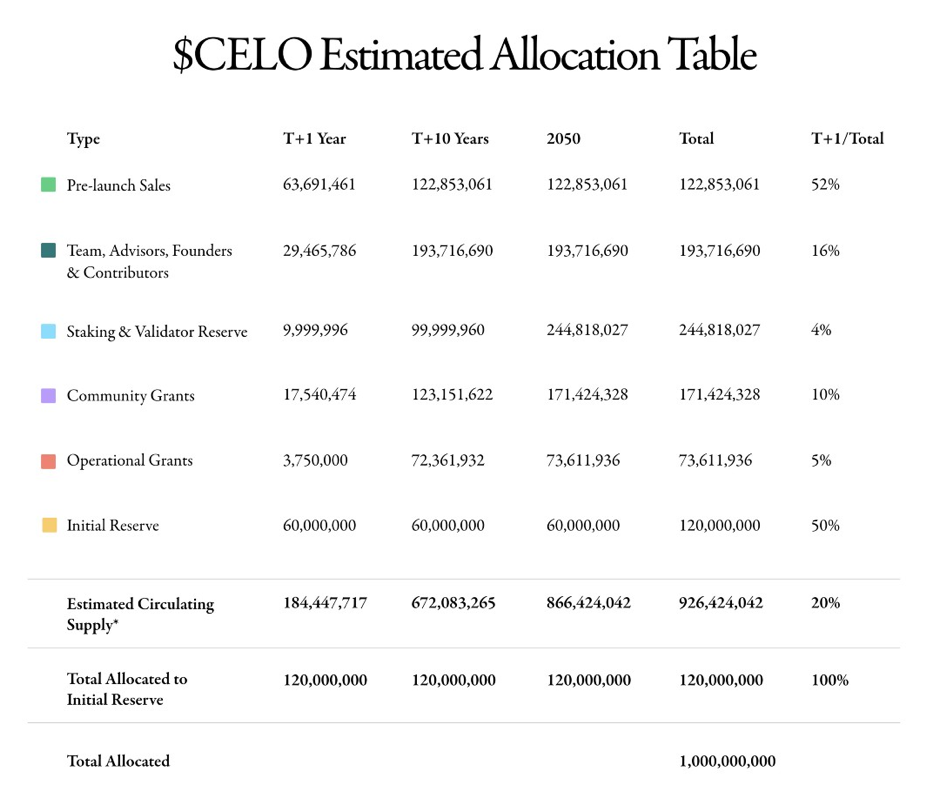
CELO Token Use Case
CELO is a native token of Celo blockchain and has these main roles:
- Governance.
- Staking to become node validators.
- Paying for transaction fees.
How to buy CELO Token
You can buy CELO Token through these exchanges:
- DEXs: Binance, Coinbase Exchange, OKEx,...
- CEXs: Coin98 Exchange, Ubeswap, SushiSwap,...
How to store CELO Token
You can store CELO token on Coin98 Super Wallet with these simple steps:
Step 1: Open Coin98 Super Wallet & click Receive on the home screen.
Step 2: Search CELO Token.
Step 3: Click on the correct result, copy the wallet address and send CELO to this address
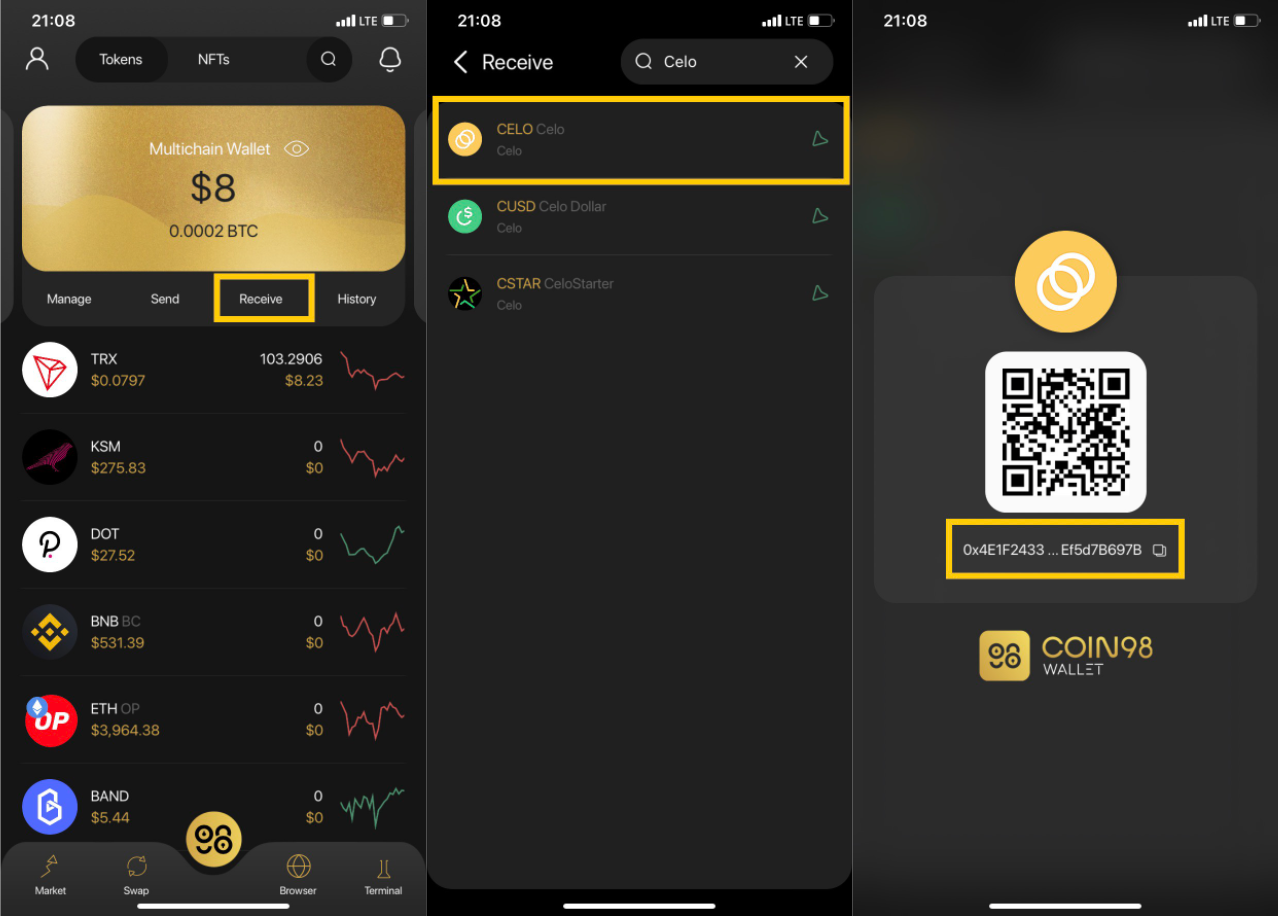
Team, Investors, and Partners
Team
Celo was founded by a team of people from MIT, Stanford, Google, Harvard University, and many other prestigious institutions.
Separate entities are aimed at Celo’s promotion and preservation. The entire team at Celo is publicly accessible via their website. Here are some key members:


Investors
Early CELO backers include prominent venture funds, C-level executives, academics, and experts from a variety of fields, including:
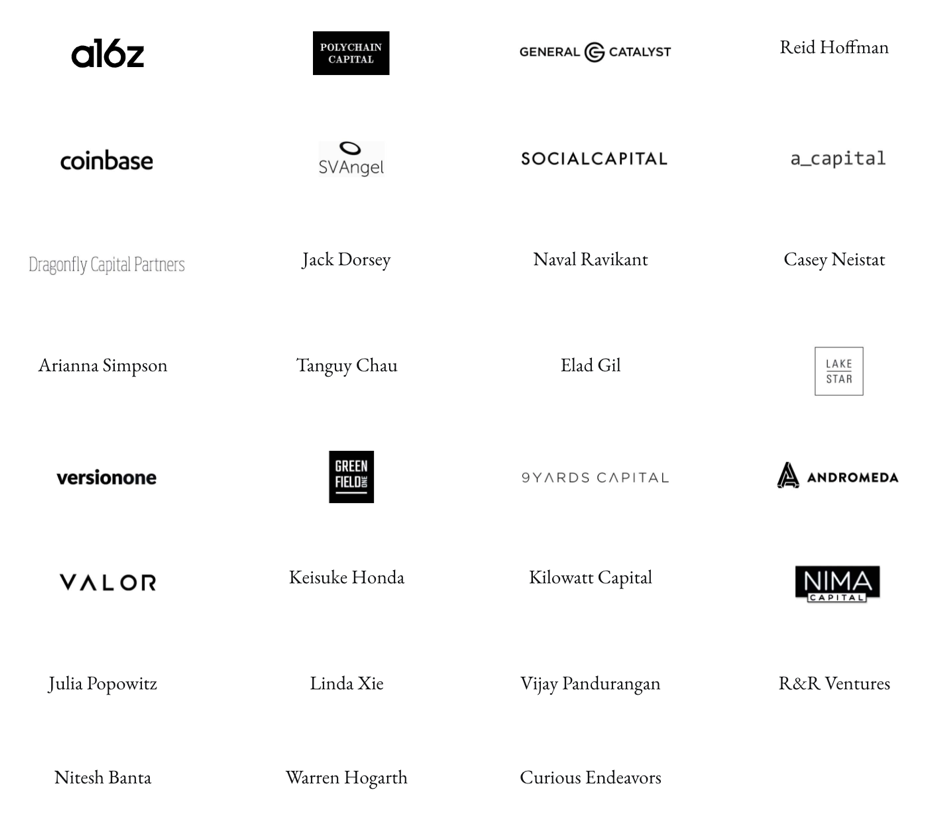
Partners
Celo has partnered with and integrated some of the most well-known DeFi Dapps, including Sushi, AAVE, Curve, Chainlink, the Graph, and many others, to help kickstart this blockchain at its early stages.
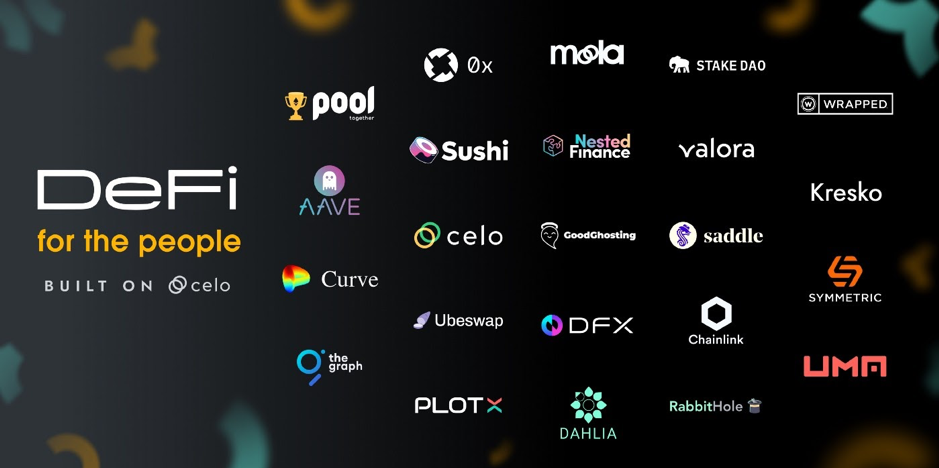
Roadmap and Update
Updates
- Q3 2017: Celo was started and the whitepaper was first published.
- July 2019: The first test network, called Alfajores, launched thereafter.
- December 2019: The incentivized testnet, called Baklava, was launched.
- Mainnet launched on Earth Day Apr 22, 2020.
- August 30, 2021: Launched DeFi for the people program with the total grants of more than $100M.
- September 29, 2021: Announced $2.5M Crypto Mobile Hackathon.
- October 28, 2021: Announced the Celo Foundation’s Wave IV Grant Recipients.
Is Celo a good investment?
In summary, you can see the whole picture of the Celo blockchain through this one-page overview.
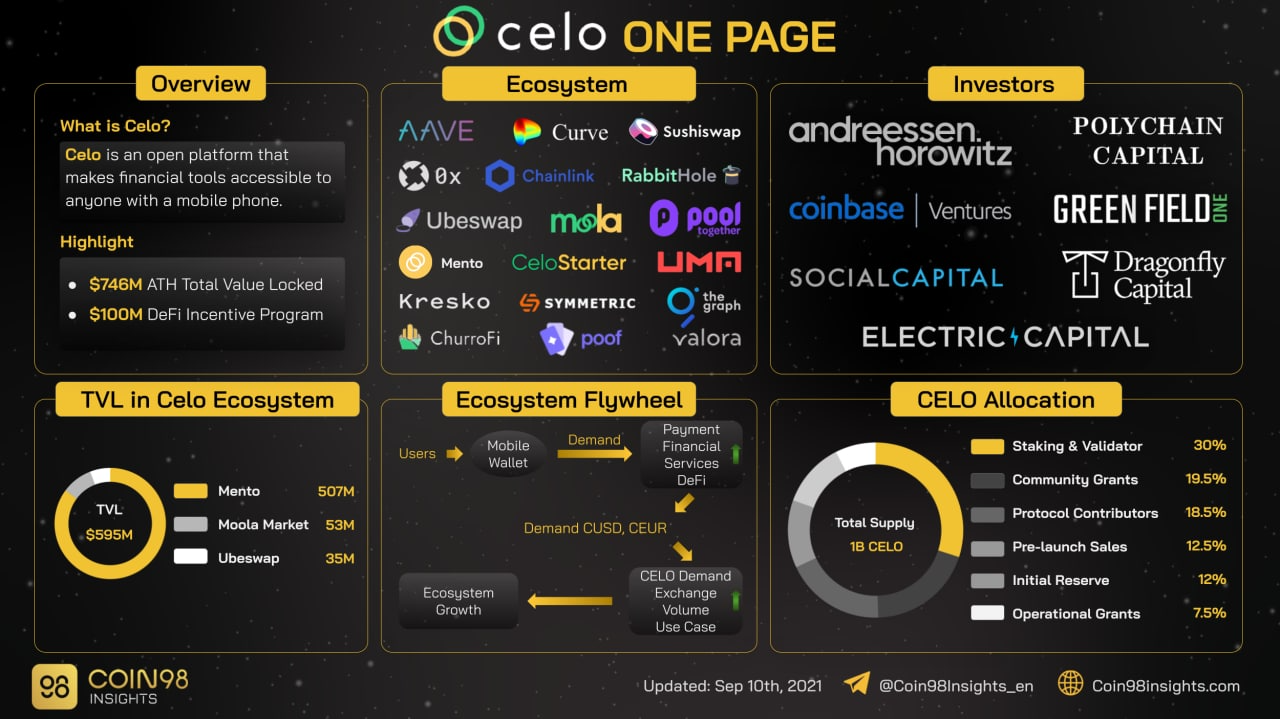
The Celo Ecosystem Flywheel
We should be fully conscious of the Celo Ecosystem Flywheel in order to capture its competitive advantages.
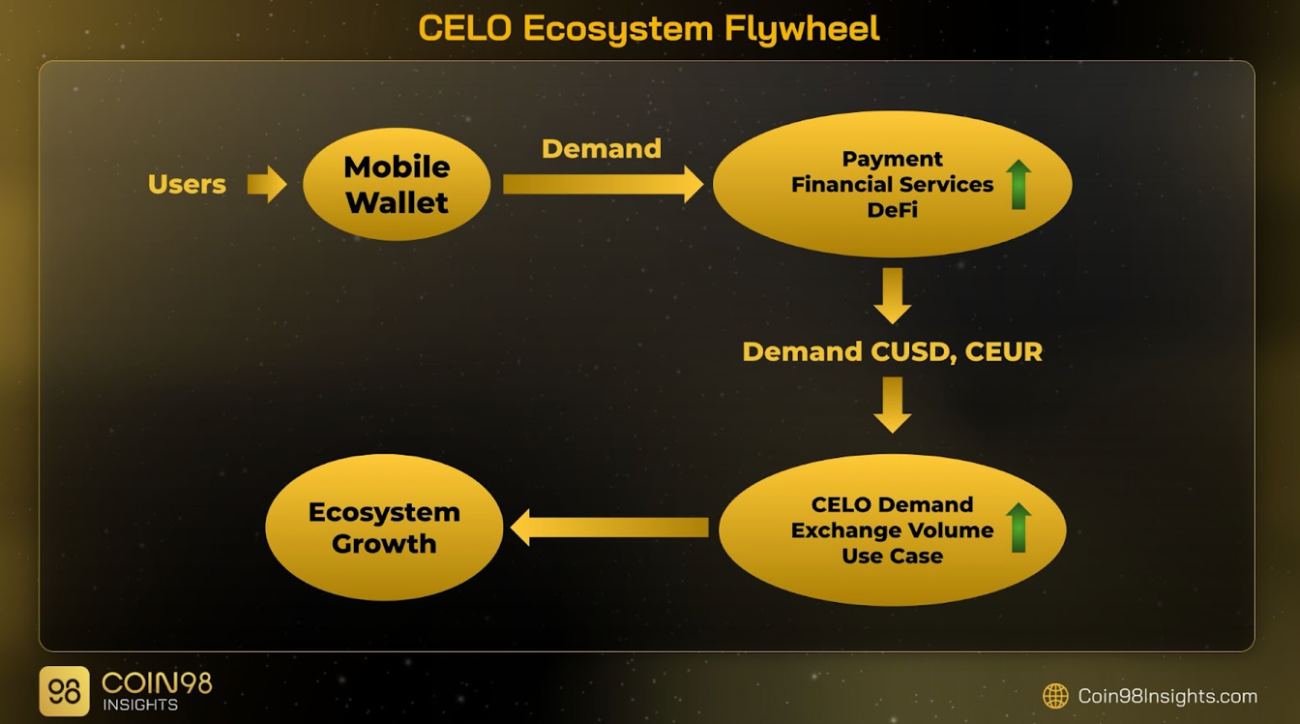
- Celo's unique competitive advantage and positioning is the innovation of a mobile blockchain, so the Mobile Wallet product will take centre stage and serve as the bridge to attract users into the ecosystem
- Therefore, convenient features such as the ability to send money by phone number, the integration of many utilities into the wallet, and so on will attract a large number of users. This will increase the demand for payment, financial services, or DeFi on Celo blockchain.
- The design of CUSD and CEUR as the system's main stablecoins, combined with the aforementioned requirements, will increase the demand for stablecoins in this ecosystem.
- Using the same operating model as Terra will raise the price of CELO and the transaction volume in the system, resulting in the growth of the entire ecosystem.
If the Mobile Wallet product is not perfected but has accelerated the development of DeFi, Celo will lose its competitive advantage, particularly when compared to other EVM Compatible Blockchains such as BSC, Polygon, and so on.
First, the Wallet issue must be addressed, and then the DeFi Incentive programme should be promoted later in order to attract liquidity and develop DeFi on Celo.
Make good use of the DeFi Incentive Program
If the foundation makes good use of the incentive program to create unique products that align with the Celo team's vision, Celo will have an opportunity to gain a competitive edge over many other ecosystems on the market today. Among their programs are the following:
- DeFi for the people program (August 30, 2021): This program offered more than $100 million in educational initiatives, grants, and incentives.
- Crypto Mobile Hackathon: Celo has committed $2.5 Million in prizes and seed funding to help light up a billion faces with Web3 projects that are committed to building mobile-first DeFi built on Celo.
- The Celo Foundation’s Wave IV Grant Recipients: The Celo Foundation committed to offer $9.35MM value in funding to 50 projects.
- Celo Camp: This campaign is now complete with batch 4, and batch 5 will be available in March 2022. Participants will become members of Celo Camp and the Celo ecosystem, and will begin contributing to inclusive finance and Web3.
Celo is still a new ecosystem in general, and the team is now devoted to furthering the ecosystem through hackathons and developer bootcamps. We still have belief in this ecosystem due to the robust team of developers and backers.
Furthermore, the generous fund (up to $100M) for DeFi development on Celo indicates that the team intends to kickstart the entire ecosystem by first approaching developers to build their projects on Celo. Once true mobile-friendly Dapps appear on this blockchain, users will pay attention to discover appealing investment opportunities.
